Dentures
Dentures are removable appliances that can replace missing teeth and help restore your smile.
There are two main types of dentures: complete dentures and partial dentures. Your dentist will help you choose the type of denture that’s best for you based on whether some or all of your teeth are going to be replaced and the cost involved.
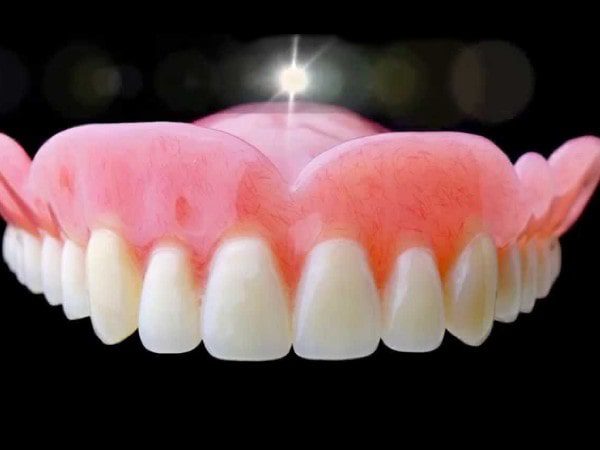
Complete Dentures
If you’ve lost all of your natural teeth, due to gum disease, tooth decay or injury, replacing missing teeth will effect your appearance and your health. That’s because dentures make it easier to eat and speak better than you could without teeth. When you lose all of your teeth, facial muscles can sag, making you look older. Dentures can help in improving the appearance of your face. They can be made to closely resemble your natural teeth so that your appearance does not change much. Dentures may even improve the look of your smile.
Types of Dentures
- Conventional – This full removable denture is made and placed in your mouth after the remaining teeth are removed and tissues have healed, which may take several months.
- Immediate – These dentures are for those who don’t want to remain without teeth. This removable denture is inserted on the same day after the removal or extraction of the remaining teeth. Your dentist will take measurements and make models of your jaw during a preliminary visit before extraction. You don’t have to be without teeth during the healing period. These dentures have to be relined or remade after your jaw has healed.
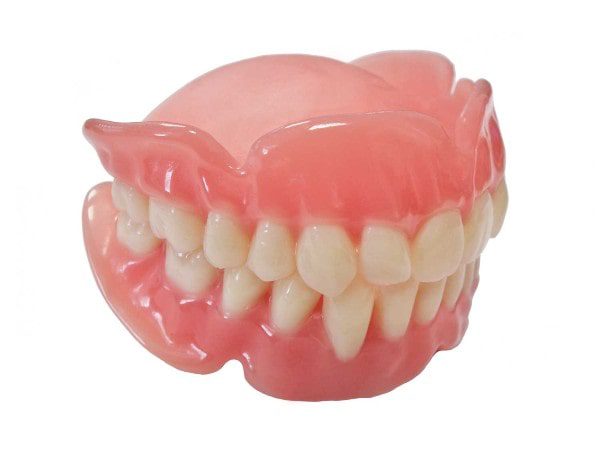
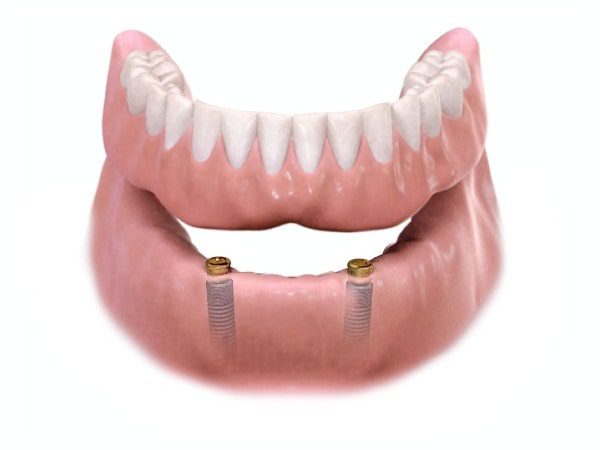
- Overdenture – Sometimes some of your teeth (bilaterally) can be saved to preserve your jawbone and provide stability and support for the denture. An overdenture fits over a small number of remaining natural teeth after they have been prepared by your dentist. Implants can serve the same function, too.
- Implant supported overdentures – When no teeth is present then implants are placed at specific sites within the jaw bone and implant supported removable dentures are placed over those implants for better retention and stability.
New dentures may feel awkward for a few weeks until you become accustomed to them. It is not unusual to experience minor irritation or soreness. You may find that saliva flow temporarily increases. As your mouth becomes accustomed to the dentures, these problems should go away.
Removable Partial Dentures
A partial denture is a acrylic partial denture or combination of a metal framework and acrylic that attaches to your remaining natural teeth. Sometimes crowns are placed on some of your natural teeth and serve as anchors for the partial denture. Partial dentures offer a removable alternative to bridges and implants. It helps in replacement of some of the missing teeth taking support from remaining natural teeth.
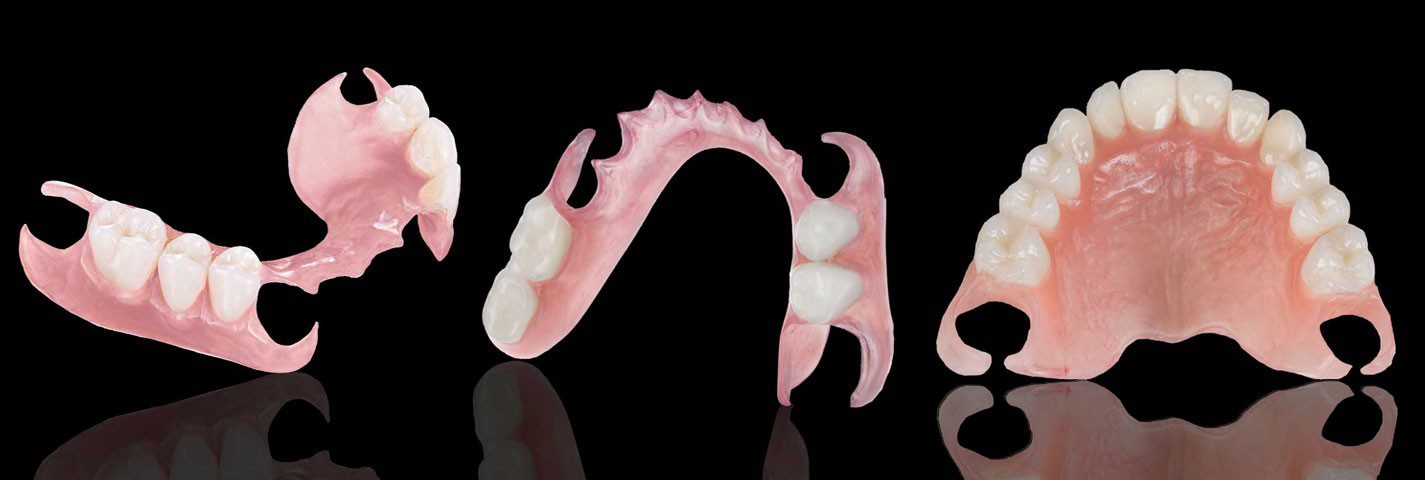
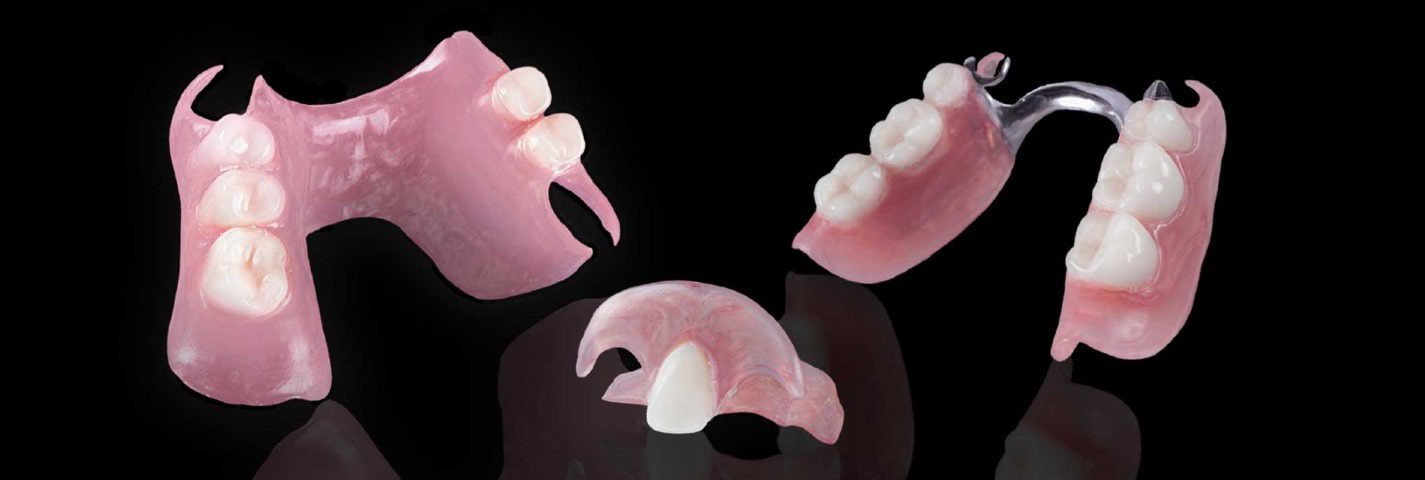
Dos and Essential Care
The removable partial dentures are either semirigid, flexible and rigid. The selection of rigidity for partial dentures varies from patient to patient.
- Regular follow-up appointments are needed after a denture is inserted so the fit can be checked and adjusted. If any problem persists, particularly irritation or soreness, be sure to consult us at “Aryas Dental and Implant Clinic”. Be sure to schedule regular dental checkups, too. The dentist will examine your mouth to see if your dentures continue to fit properly.
- Maintain good oral hygiene – Even if you wear full dentures, you still have to maintain good dental hygiene. Brush and massage your gums, tongue and roof of your mouth every morning with a soft-bristled brush before you insert your dentures to stimulate circulation in your tissues and help remove plaque.
- Maintain good denture hygiene – Like your teeth, your dentures should also be brushed daily to remove food particles and plaque. Brushing also prevent the teeth from staining.
- Rinse your dentures before brushing to remove any loose food or debris.
- Gently clean all the surfaces of dentures using a soft bristle toothbrush and a non-abrasive cleanser.
- When brushing, clean your mouth thoroughly to remove any plaque. This can help reduce the risk of oral irritation and bad breath.
- When you’re not wearing your dentures, put them in a safe place in bowl of water.
Remember to remove your dentures and put them in a bowl of water before going to sleep.

